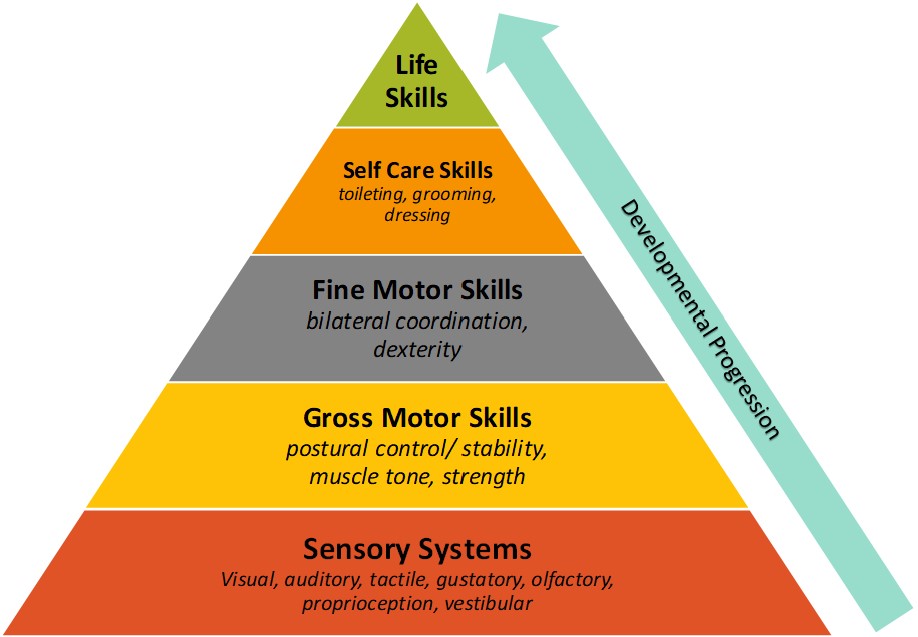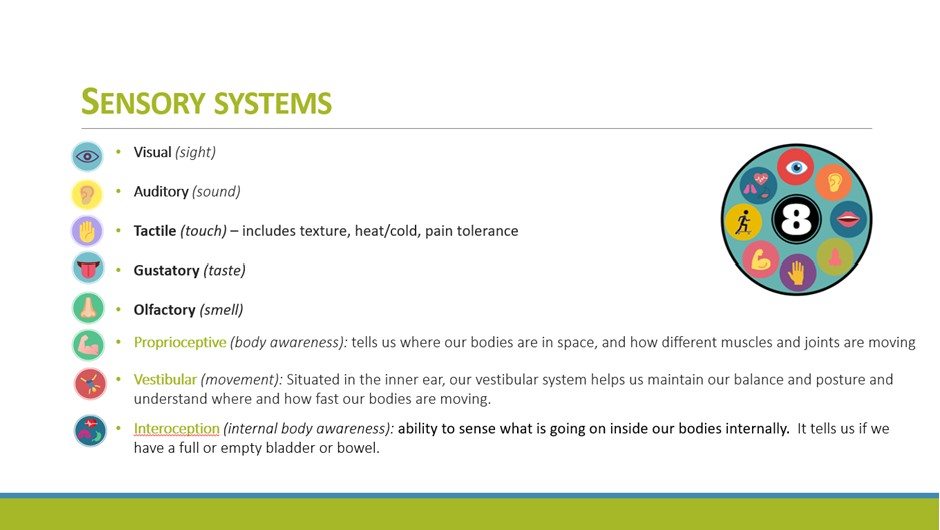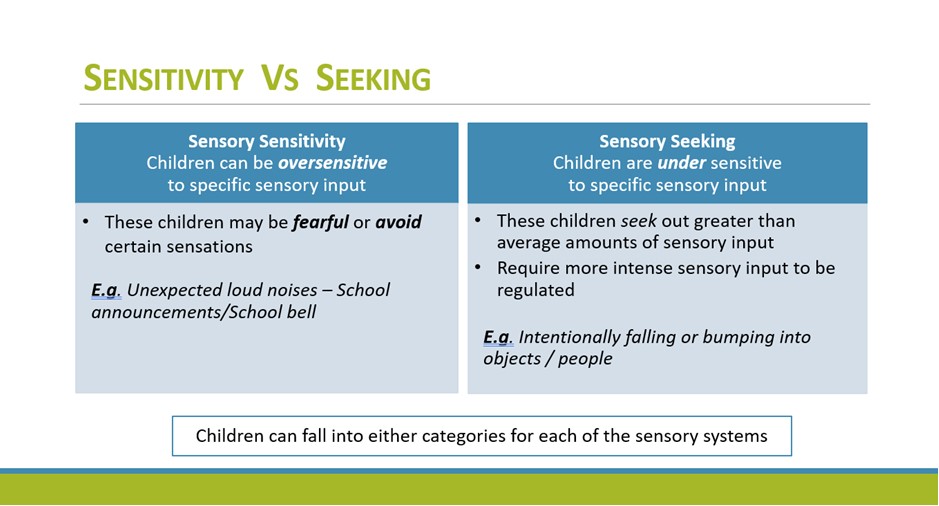Sensory Processing
Sensory processing is the ability to take in, organize, and make sense of the sensory information received by the brain from the sensory systems and respond appropriately. It is the foundation for skill development.

While we are familiar with the five basic senses, three additional sensory systems are also at play.

Children with sensory processing challenges may experience:
- Reduced participation in activities of daily living
- Impaired self-esteem and increased levels of anxiety
- Increased levels of frustration
- Difficulties with self-regulation
- Reduced involvement in sensory experiences
Research suggests that approximately 49% of individuals with Down syndrome experience sensory processing challenges, compared to about 5-16% of the general population.
Children with sensory processing challenges are often described as having a sensory sensitivity or a sensory seeking pattern.

At DSRF, occupational therapists can help assess an individual’s specific sensory needs and provide strategies and resources to help manage everyday sensory functioning.
DSRF Resources
Strategies to Support Children with Down Syndrome in the Classroom
Other Resources
STAR Institute: Sensory Processing Health and Wellness
Sensory Integration: Observations of Children with Down Syndrome and Autistic Spectrum Disorders
